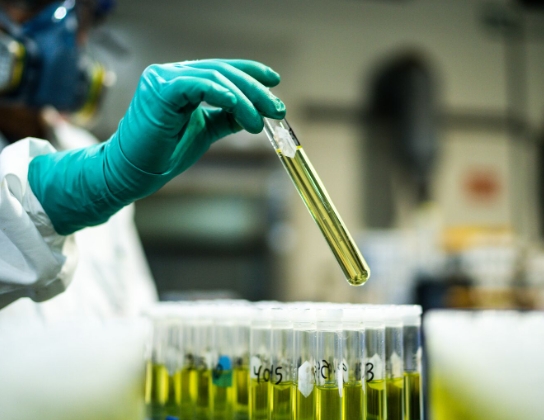
Enzymes, the molecular catalysts of life, play a pivotal role in various chemical and biological processes. From facilitating essential biochemical reactions to regulating cellular functions, enzymes are the unsung heroes behind the scenes. In this article, we delve into the profound chemical and biological significance of enzymes, exploring their mechanisms, applications, and emerging research trends.
- Enzymes: Nature's Molecular Architects
Enzymes are specialized proteins that accelerate chemical reactions by lowering the activation energy required for a reaction to occur. They achieve this by binding to specific substrates and facilitating their conversion into products. This remarkable ability makes enzymes indispensable in countless biological processes, including metabolism, DNA replication, and protein synthesis. - Enzyme Mechanisms: Unlocking the Secrets
Understanding the mechanisms by which enzymes catalyze reactions is crucial for unraveling their significance. Enzymes employ various strategies, such as proximity and orientation effects, acid-base catalysis, and covalent catalysis, to enhance reaction rates. By providing an optimal microenvironment and stabilizing transition states, enzymes enable reactions to occur efficiently under physiological conditions. - Enzymes in Metabolism: Powerhouses of Energy Conversion
Metabolic pathways rely heavily on enzymes to convert nutrients into usable energy and building blocks for cellular processes. Enzymes like ATP synthase and cytochrome oxidase participate in oxidative phosphorylation, generating ATP, the universal energy currency of cells. Enzymes also regulate metabolic flux, ensuring a delicate balance between anabolism and catabolism. - Enzymes as Diagnostic Tools: Unveiling Disease Markers
Enzymes serve as valuable diagnostic markers for various diseases. For instance, elevated levels of certain enzymes, such as creatine kinase or alanine aminotransferase, in blood samples can indicate heart or liver damage, respectively. Enzyme-based diagnostic tests enable early detection and monitoring of diseases, aiding in timely interventions and treatment. - Enzymes in Biotechnology: Catalysts for Innovation
The industrial and biotechnological applications of enzymes are vast and ever-expanding. Enzymes are used in diverse fields, including food processing, pharmaceutical production, and environmental remediation. Their specificity, efficiency, and environmentally friendly nature make them ideal catalysts for numerous processes, ranging from cheese-making to drug synthesis. - Emerging Frontiers: Enzyme Engineering and Synthetic Biology
Advancements in enzyme engineering and synthetic biology are revolutionizing the field. Scientists can now modify enzymes to enhance their catalytic properties, broaden substrate specificity, or create entirely new functionalities. This opens doors to tailored enzymatic solutions for specific applications, such as biofuel production, bioremediation, and personalized medicine.
Conclusion:
Enzymes are the unsung heroes of the biological world, orchestrating the intricate molecular symphony of life. Their chemical and biological significance spans from fundamental cellular processes to cutting-edge biotechnological applications. As research continues to unveil the secrets of enzymes, their potential for innovation and impact on various industries are boundless. Embracing the power of enzymes unlocks a world of possibilities, where nature's molecular architects pave the way for a brighter future.







